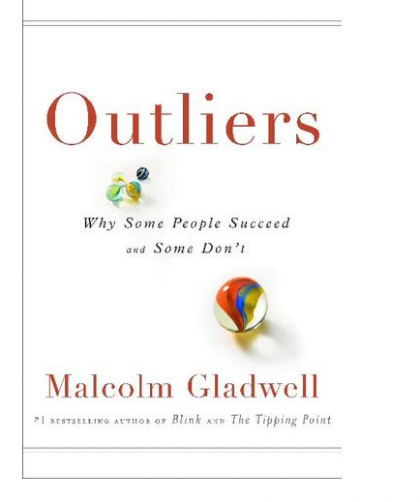
No, Malcolm Gladwell’s book, Outliers, makes no reference to newspapers or the media. It is all about how perhaps talent is slightly overrated, and is less important than, let’s say, luck, or influences of culture.
It is here that I kept thinking “newsroom” although Gladwell’s chapters were dealing with hockey players in Canada, or the Beatles, or Manhattan lawyers. One of the chapters in the book deals with specific cases about plane crashes involving Avianca, the Colombian airline, as well as Korean Air, from South Korea. In both cases, the culture in which the pilots grew up determined the outcome of fatal crashes. How a first officer viewed the captain—-and how he thought the captain had to be treated based on cultural values—-led to decisions that led to catastrophic results.
It took the convincing tone of Gladwell’s arguments about the impact that culture has on all of us for me to realize that a part of what I observe inside newspaper newsrooms, obviously with less catastrophic results, but also with no happy endings, is deep rooted on a culture that involves how journalists see themselves and the role they play, the way they relate to their advertising colleagues, and how, in many cases, they have been extremely late in recognizing the impact of the Internet.
Gladwell plays with dates a lot. For example, he maintains, in Canadian hockey youth leagues, success is greatly determined by what time of the year a player was born: a player born in January will be the oldest on his team, enjoying a big difference in size and maturity. The early birds get more playing time and coaching, advantages that lead to success. Talent comes second. Likewise, Gladwell maintains, the best year for a software mogul to be born was 1955—-think Bill Gates and Steve Jobs ( old enough for the start of the personal computer revolution in the mid-1970s, but too young to have already started down a career at IBM).
In a sense, if we, too, use dates as determinants of success or failure, perhaps newspapers would fare much better today if the Internet had become a major force in the lives of news information gatherers and users ,not around 1995, but precisely in 2000. Why? Younger executive editors at the top of the hierarchy of a newsroom would have been more receptive to change, and to assimilation of a flawless print/online operation. As it happened, because those at the top in the 1990s were men and women already in their late 50s, with a decade of service ahead of them, the importance of online operations, and their permanence, was lost upon this generation of editors who, good journalists as they may have been, were not ready to let go of established patterns, primarily: it is not news until it appears in the PRINTED newspaper.
Culture, indeed, has played a role. In terms of the newspaper industry, there are but a handful of outliers out there.
I recommend the book, even if, after reading it, you disagree with Gladwell’s theories. It is a fun, intensely fascinating read all the way to the end, when Gladwell—-obviously a successful man—-writes about his own history, as the son of a Jamaican woman who lands a scholarship to study in London and marries an Englishman.
By the way, my reflections after reading Outliers resonated again when I read this TIME magazine piece, which I also recommend: Turning the Page: The News on Europe’s Newspapers
http://www.time.com/time/magazine/article/0,9171,1880581,00.html
![]()
By the way, for a definition of the term “outlier”:
In statistics, an outlier is an observation that is numerically distant from the rest of the data. Statistics derived from data sets that include …
en.wikipedia.org/wiki/Outliers
Of special interest:
Turning the Page: The News on Europe’s Newspapers
http://www.time.com/time/magazine/article/0,9171,1880581,00.html
TheMarioBlog posting #199.